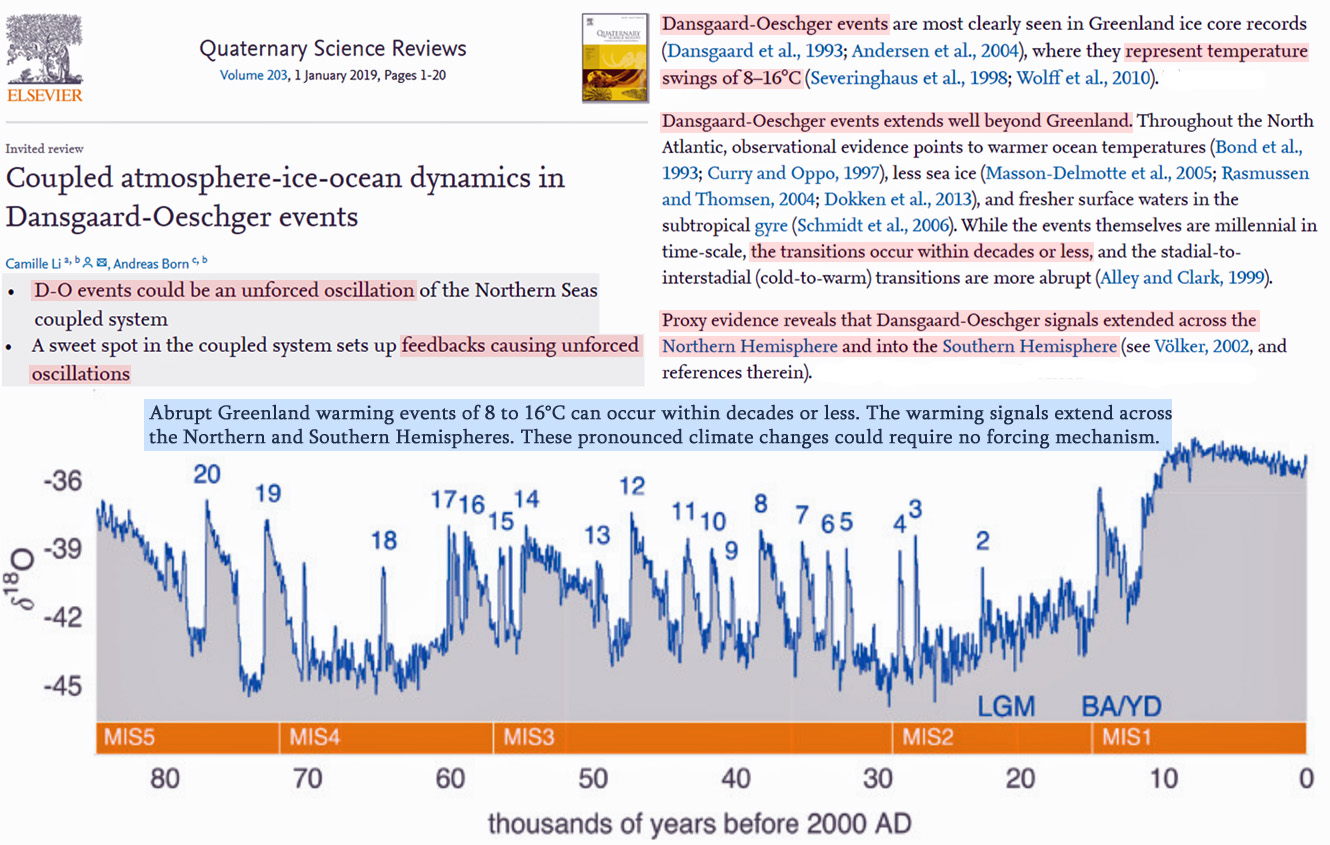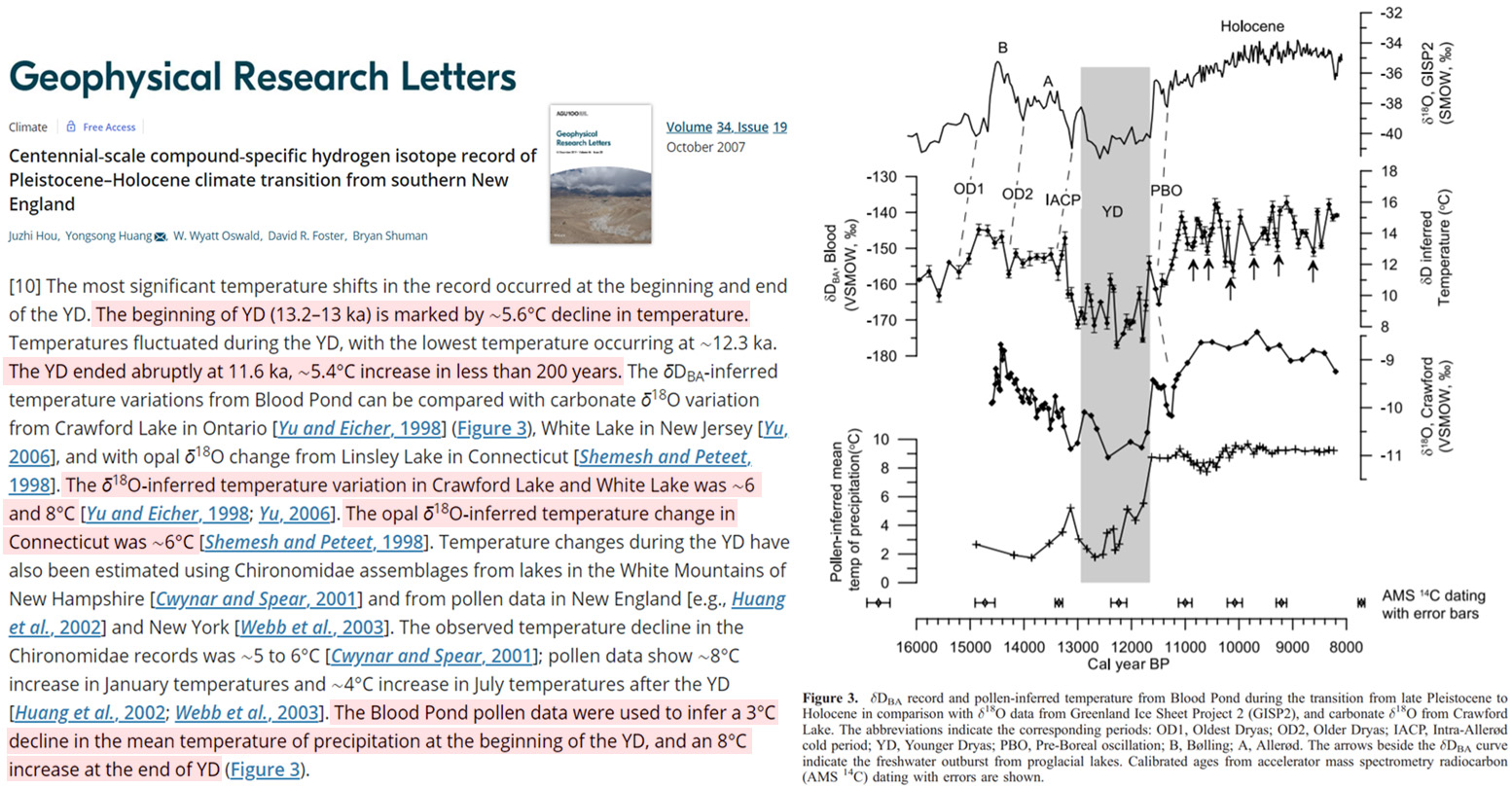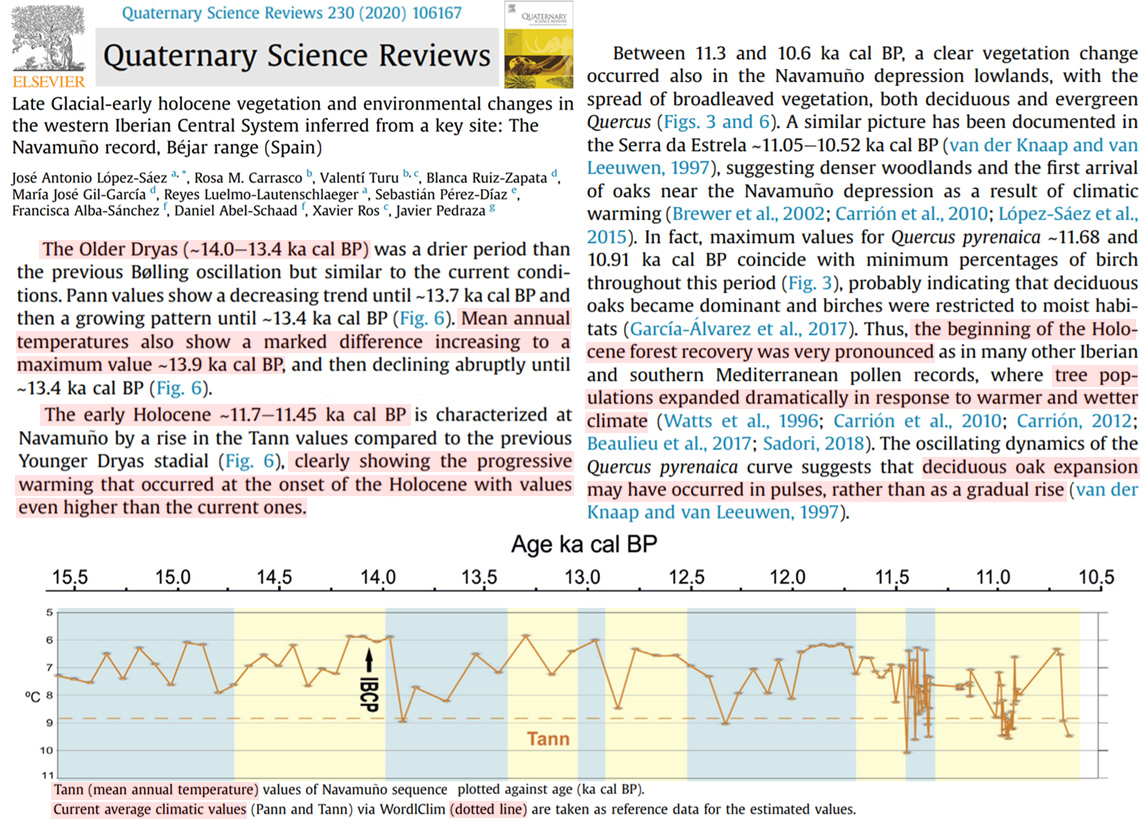At the end of the last glacial, when CO2 concentrations hovered around 250 ppm, there were abrupt warming and cooling events in the Spanish mountains (Béjar range) with magnitudes of 3°C within decades. Peak temperatures were at times warmer than today.
It has often been claimed that abrupt warming and cooling events with amplitudes reaching multiple degrees within 20 to 50 years were confined to records obtained from polar climates.
Greenland
Greenland, for example, warmed by 8 to 16°C “within decades or less” 20 or more times during the last 80,000 years (Li et al., 2019). The warming and cooling events may have occurred in the absence of an external an forcing mechanism; instead, they were an “unforced oscillation”. The abrupt climate changes extended throughout the Northern Hemisphere and even into the Southern Hemisphere.

Image Source: Li et al., 2019
New England (US)
In the northeastern United States, temperatures plummeted by 5.6°C within 200 years about 13,000 years ago (Hou et al., 2007). Then, around 11,600 years ago, temperatures abruptly rose ~5.4°C “in less than 200 years”. One proxy location (Blood Pond) even suggests there was an 8°C warming event in the US about 11,500 years ago.

Image Source: Hou et al., 2007
Western Spain (Béjar)
A new study (Lopez-Saez et al., 2020) of the Late-Glacial-Early-Holocene period (about 15,000 to 11,500 years ago) analyzes evidence of tree cover transitions in the western Iberian region (Spain).
Deciduous oak forests were assessed to have abruptly expanded and declined during this period. The established temperature tolerances for this tree species suggest the warming-cooling transitions occurred within decades to centuries, and the climate change amplitudes could reach 2-4°C.
Despite the low and modestly fluctuating CO2 concentrations during this Late-Glacial period (~250 ppm), the evidence suggests regional temperatures were warmer than today 13.9, 12.3, 11.5-11.3, and 10.9 ka cal BP (thousand calibrated years before present).
These pronounced natural climate change events in the paleoclimate record do not support the contention that modern temperture changes are unusual or unprecedented.






Recent Comments